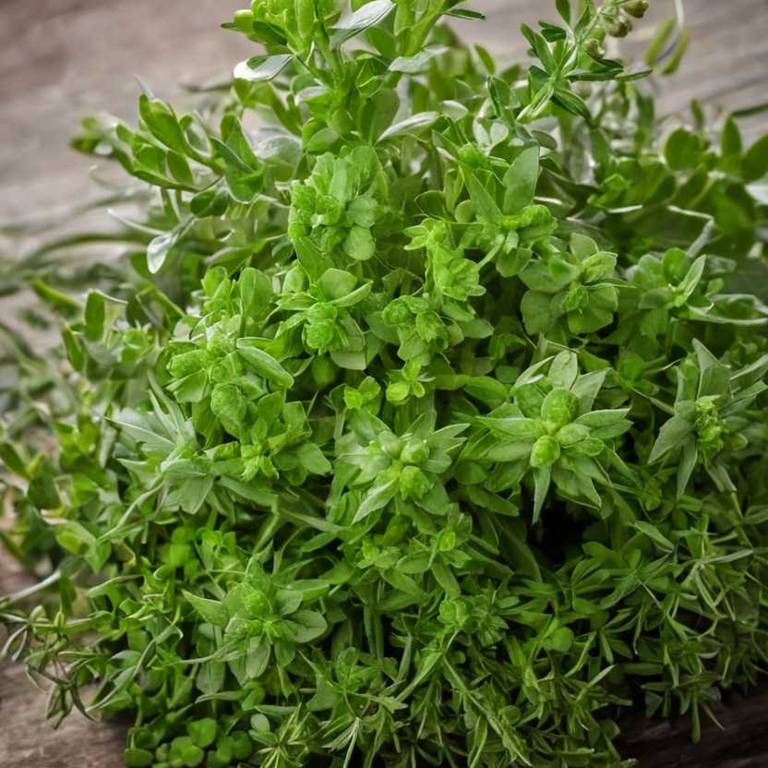Common Milkweed (Euphorbia hirta)
Common Milkweed (Euphorbia hirta) is a member of the Euphorbiaceae family, native to Southeast Asia, Indo-Malay Region, and Tropical Africa. Traditionally, its leaves, stems, and roots have been used for decoctions, infusions, and poultices.
This herb is particularly valued for its anti-inflammatory, bitter, and diuretic actions, and has a long history of use in african traditional medicine, ayurvedic medicine, and traditional chinese medicine.

Quick Facts / Key Information
| Common Name | Common Milkweed |
|---|---|
| Scientific Name | Euphorbia hirta |
| Plant Family | Euphorbiaceae |
| Genus | Euphorbia |
| Species | hirta |
| Native Range | Southeast Asia, Indo-Malay Region, Tropical Africa |
| Plant Parts Used | Leaves, Stems, Roots |
| Primary Medicinal Actions | Anti-Inflammatory, Bitter, Diuretic |
| Primary Traditional Systems | African Traditional Medicine, Ayurvedic Medicine, Traditional Chinese Medicine |
| Historical Preparation Methods | Decoction, Infusion, Poultice |
Botanical Identity
- Scientific Name
- Euphorbia hirta
- Common Name
- Common Milkweed
- Synonyms / Alternative Names
- Euphorbia Hirta, Common Milkweed, Euphorbia Hirta
- Plant Family
- Euphorbiaceae
- Genus
- Euphorbia
Botanical Description
- Growth Habit
- Perennial herbaceous plant.
- Height
- It typically grows to a height of 30 to 100 centimeters.
- Leaves
- Broad leaves with upper surface glabrous and pale green, lower surface pubescent and darker green, featuring distinct stomatal bands along the midrib.
- Flowers
- Flowers are solitary, actinomorphic, with five white petals and yellow staminodes arranged in a crown around the central ovary.
- Stems
- Erect, branched, hairy, with opposite or alternate phyllotaxis, and bearing milky sap in the parenchyma.
Traditional Uses / Historical Use
Traditional Systems
- African Traditional Medicine
- Ayurvedic Medicine
- Traditional Chinese Medicine
Historical Preparation Methods
- Decoction
- Infusion
- Poultice
- Powder
Medicinal Actions
- Anti-inflammatory
- In herbal literature, noted as a warming anti-inflammatory, in inflammation-focused discussions.
- Bitter
- Commonly referenced as a moderate bitter, in taste-driven classifications.
- Diuretic
- Traditionally described as a mild diuretic, for moisture-related balance.
- Astringent
- In herbal texts, considered a soothing astringent, in structural-support contexts.
Active Compounds
- Flavonoid
- A group of naturally occurring compounds commonly present in many flowering plants.
- Phenolic Acid
- Simple phenolic molecules widely distributed across plant tissues.
- Tannin
- High-molecular-weight phenolic compounds found in many plant species.
- Terpenoid
- A chemical class commonly associated with volatile plant constituents.
Modern Research Overview
Modern scientific investigation of this plant has focused on identifying its chemical constituents and examining their properties in controlled research settings. Comprehensive study summaries will be incorporated into this section as additional sources are reviewed.
Safety & Contraindications
- General Precautions
- Precautionary considerations have been reported in relation to this herb.
- Contraindications
- The use of this herb has been associated with reported contraindications in some situations.
- Allergies
- Sensitivity or allergy-related effects have not been clearly established.
- Drug Interactions
- Interactions with prescription medications have not been well documented.
- Toxicity
- Toxicity related to this herb has been documented in available sources.
- Pregnancy & Breastfeeding
- There is insufficient evidence to determine the safety of this herb during pregnancy or breastfeeding.
Preparation & Usage Methods
- Infusion
- Water is poured over plant material and allowed to steep before straining.
- Decoction
- Plant material is simmered in water to extract compounds from tougher parts.
- Poultice
- This method uses direct contact between plant material and the skin.
- Infused Oil
- Plant material is steeped in oil to transfer fat-soluble compounds.
- Powder
- This method converts dried plant material into a uniform powder.
Growing, Harvesting & Storage
Growing / Cultivation
- Soil
- Prefers loamy soil with well-drained conditions. Typically grows best in organically rich soils.
- Sunlight
- Thrives in full sun. Tolerates full sun to partial shade.
- Watering
- Prefers well-balanced moisture levels. Tolerates periodic dry conditions.
Medical Disclaimer
The information provided on this page is for educational and informational purposes only. It is not intended to diagnose, treat, cure, or prevent any medical condition. Always consult a qualified healthcare professional before using any herb for medicinal purposes.